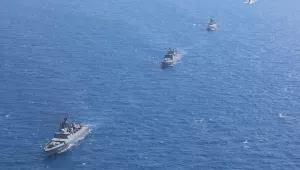Overview
Kosovo, after its incorporation into the Serbian Republic of Yugoslavia, became increasingly restive during the 1990s as Yugoslavia plunged into internal war and Kosovo's ethnic Albanian residents (Kosovars) sought autonomy. In March 1999, NATO forces began airstrikes against targets in Kosovo and Serbia in an effort to protect Kosovars against persecution. The bombing campaign ended in June 1999, and Kosovo was placed under transitional UN administration while negotiations on its status ensued. Kosovo eventually declared independence in 2008. Despite internal political tension and economic problems, the new nation has been recognized by many other countries and most of its inhabitants welcome its separation from Serbia.
In Liberating Kosovo, David Phillips offers a compelling account of the negotiations and military actions that culminated in Kosovo's independence. Drawing on his own participation in the diplomatic process and interviews with leading participants, Phillips chronicles Slobodan Milosevic's rise to power, the sufferings of the Kosovars, and the events that led to the disintegration of Yugoslavia. He analyzes how NATO, the United Nations, and the United States employed diplomacy, aerial bombing, and peacekeeping forces to set in motion the process that led to independence for Kosovo. He also offers important insights into a critical issue in contemporary international politics: how and when the United States, other nations, and NGOs should act to prevent ethnic cleansing and severe human-rights abuses.
Praise for Liberating Kosovo:
"This diplomatic history both sheds light on events in Kosovo and informs future mediation. It highlights the importance of careful analysis in order to understand the root causes of conflict and devise sustainable solutions."
– Martti Ahtisaari, Chairman of the Board of Crisis Management Initiative; former Special Envoy of the UN Secretary-General for the future status process for Kosovo; Novel Peace Prize Laureate 2008
"An insightful and riveting account of the policies, process, and players that led Kosovo to independence."
– Soren Jessen-Petersen, Professor, School of Advanced International Studies, Johns Hopkins University; former Special Representative of the UN Secretary-General and Administrator in Kosovo
"David Phillips has given us timely and important insights into one of the overriding issues of the post–Cold War period—the responsibility of the international community and the United States to act when the world is faced with genocide, crimes against humanity, and ethnic cleansing."
– Frank G. Wisner, Special Representative of the U.S. Secretary of State to the Kosovo Final Status Talks
"Liberating Kosovo is an engaging read. Phillips knows how to tell a story, and he has a story to tell. … [He] tells this astounding story as a diplomatic history of the American campaign to oust Milosevic's forces from the erstwhile Yugoslav province, and of the Albanian-Americans' campaign to generate and maintain political support in Washington, D.C. for Kosova's independence. … Phillips's re-telling of the Albanian-Americans' campaign for Kosova is highly instructive, and also entertaining. … Phillips appears to have spoken to almost everyone who counts in America and Kosova."
– Toby Vogel, Illyria, January 18–21, 2013
“This is not an objective account of how Kosovo became independent. David L. Phillips was a participant in the story that he tells. His narrative is part memoir and part justification. . . . Phillips’ subjective version of the recent history of Kosovo has strengths that a self-consciously objective analysis would probably lack. It provides an authentic account of the motivations of the policymakers involved [and] it makes it easier to identify heroes: The author populates his narrative with larger-than-life portraits of Richard Holbrooke, Martti Ahtisaari, and Soren Jessen-Petersen.”
– Erik Jones, Survival, June–July 2013



